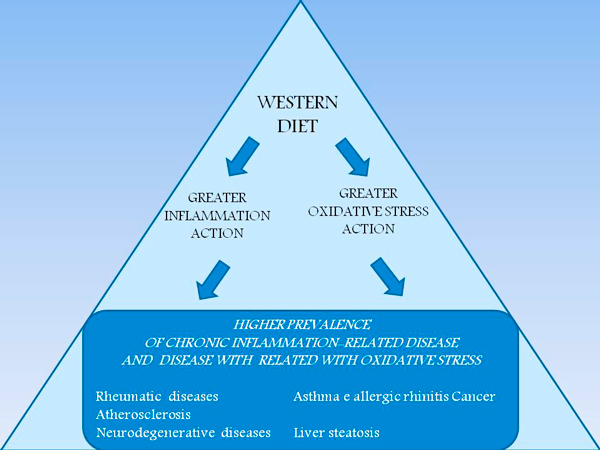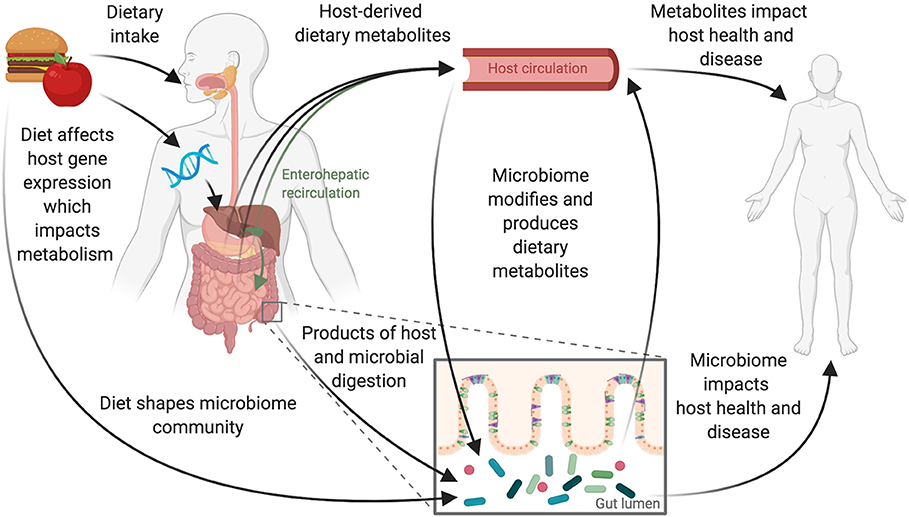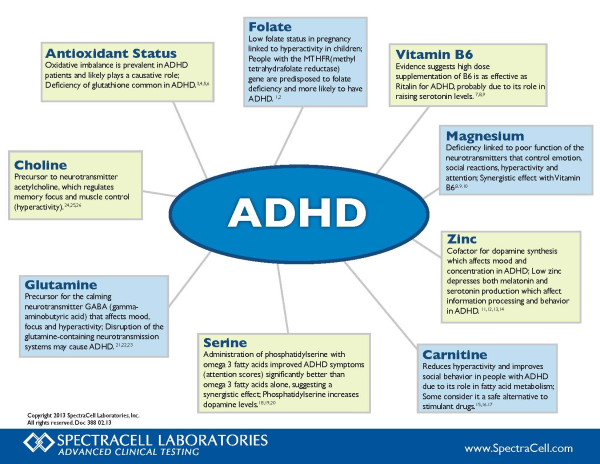
Chronic diseases continue to grow in number, now extending their reach into developing countries who have adopted Westernized foods and habits.1 Conditions such as Alzheimer’s disease (AD), stroke, osteoarthrosis, obesity, autism, and attention deficit hyperactivity disorder (ADHD) are but a sample of conditions associated with Westernized foods and culture, which have now migrated into other nations.1(89) As a means of appreciating the physiological ramifications of Western diets, the following will briefly consider such a diet and its relationship to ADHD.

Bengmark1(89) forecasted that by the year 2050, there will be a doubling of diabetes, and a tripling of AD, cancer, and ADHD. Interestingly, in countries representing 5% of the world’s population (United States and the United Kingdom), such regions which are highly advanced paradoxically have the highest rates of chronic diseases.1(89) Although such information is correlational, it does beg one to consider the connection and underlying causative factors.

One characteristic of developed nations thought to contribute to diseases such as ADHD could be the overconsumption of foods, which disrupt the microbiome. Bengmark1(90) suggested that Western diets could be inducing inflammatory cascades, which disrupts the natural balance of bacterial species, fungus, and viruses along the intestinal tract. Such changes could be depleting metabolic fuels necessary for microbial survival and proliferation, in addition to disruption of the gut barrier.1(90)

Loscalzo2 stated that nutritional imbalances amongst children with ADHD are prevalent and likely derived from severe overconsumption of nutrient-depleted processed foods, in addition to oxidized fats. Additionally, research has indicated that most children between ages 2-5 years consume less than half of a serving of vegetables as well as less than one serving of fresh fruit each day.2(36) Most relevantly, the average child consumes in excess of 45 teaspoons of sugar per day as well as large quantities of hydrogenated/processed oils and refined carbohydrates.2(36)

Such disruption of the gut microbiome, in addition to the overconsumption of nutrient-depleted processed foods, has produced nutrient imbalances negatively affecting brain chemistry.2(36) Loscalzo2(36) indicated that marginal levels of nutrients found amongst individuals with ADHD included (but not limited to) low zinc, magnesium, iron, B vitamins, and essential fatty acids. Furthermore, additives, preservatives, and flavor enhancers have been contributing factors to behavioral issues; such an aggregate of said elements have likely had an additive and non-favorable physiological impact upon young children with ADHD.2(36)
In conclusion, chronic diseases continue to grow in number, now extending their reach into developing countries who have adopted Westernized foods and habits. Conditions such as ADHD are associated with Westernized foods and culture, which have now migrated into other nations. Overconsumption of processed foods has created downstream effects to include exaggerated inflammatory responses, compromised intestinal gut permeability, and chronic depletion of key nutrients to include zinc, magnesium, iron, B vitamins, and essential fatty acids. As such, it would be both logical and reasonable to consider removal of processed foods as a critical first-step in managing ADHD.
References
1. Bengmark, S. Gut microbiota, immune development and function. Pharmacol Res. 2013;69(1):87-113. doi:10.1016/j.phrs.2012.09.002.
2. Loscalzo R. An integrated approach to the management of attention deficit hyperactivity disorder (ADHD) in children: The role of dietary and nutritional interventions. Nutr Perspect. 2004;27(4):33-44. http://eds.a.ebscohost.com.libproxy.bridgeport.edu/eds/pdfviewer/pdfviewer?vid=10&sid=ced88a07-2f39-4c67-be1b-216b6bdaed23%40pdc-v-sessmgr06. Accessed February 20, 2020.
-Michael McIsaac
